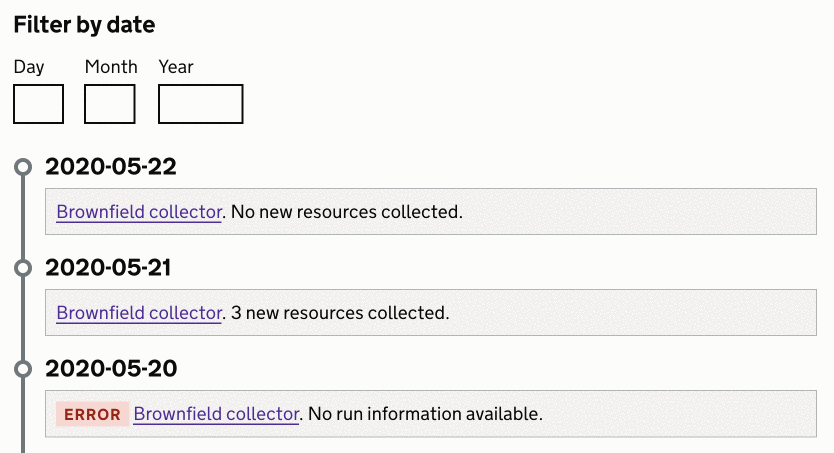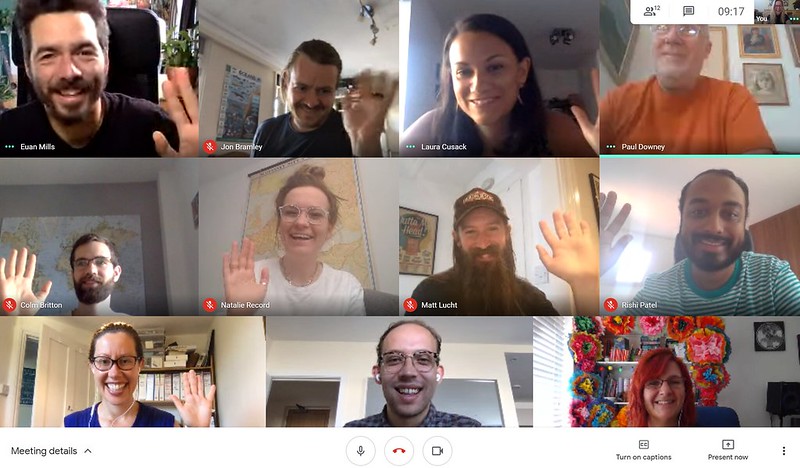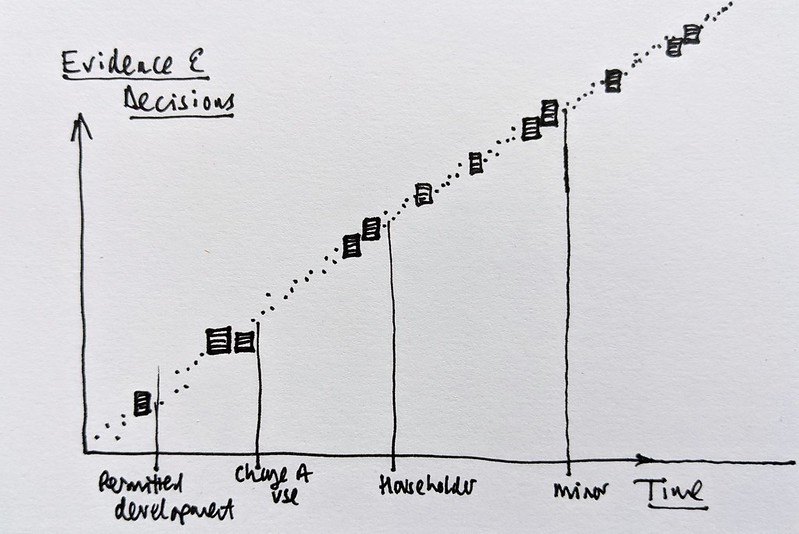Digital land sprint notes
We’re back! After supporting the department’s Covid-19 response, we’re working on Digital Land projects once again and we’ve hit the ground running in this first sprint.

Team
Most of the team have been supporting the department’s response to Covid-19 since March. We’ve been working with GDS and the MHCLG Shielding team, helping to get data on extremely vulnerable people to local authorities and wholesalers, in order to provide food, essential supplies and support to people who need it.
But now the band are back together, focussing on Digital Land projects once again—but with 4 fresh faces! Laura Cusack has joined the team as a delivery manager, helping us hit the ground running as we transition back onto Digital Land project work. We’ve also welcomed Jon Bramley as our new developer, and Loїc Boisdron as our service designer. And last, but certainly not least, Euan Mills has joined the team, bringing his expertise and enthusiasm for digital planning.
Revisiting our vision and priorities
To help us refocus after having much of the team working on Covid-19 related work, we’ve been spending some time updating our vision and priorities. As part of this we’ve run sessions on each of the projects we’ve worked on over the last 2 years, playing back the work we’ve done, the prototypes we’ve tested, and what we’ve learnt from them.
We’ve learnt so much over the last 2 years that this feels like the right time for our team to begin the work of moving from an alpha to beta phase. Not only are we now equipped to be more confident about where we should focus our efforts, we have some strong ideas for how to prioritise the data which will have the most impact. With this renewed focus, we’ve begun developing a roadmap for things we'd like to deliver in the next 3 months, 6 months, 1 year, and 2 years, and to work out what we need to do next in order to make our vision a reality.
Local plans
Throughout April and May, dxw have been working on the local plans alpha phase. The team carried out brilliant work, designing prototypes, researching with a range of users, and building data recommendations for a beta phase. There is more detail about the learnings and outcomes of the project on our local plans alpha page.
Collecting local authority data
As part of our pipeline process, we have a series of collectors that run each night, collecting data and creating useful datasets. We’d like to be able to run more of these collectors so that we can make more data available. To do that, Jon has been working on generalising the collection and pipeline code so that it can be more readily reused.
Read more about our collectors and pipeline process.
Colm has been drafting user stories and working on page designs that expose the inner workings of the collectors, so that they are easier to maintain, and issues with them are easier to discover and fix.
Colm has also added a new timeline component to our site:
Data exchange patterns
Lorna began a short project that aimed to build up a set of attributes that could be considered when designing a data exchange system with local authorities. To inform this, she spoke to several other services that receive or publish data, mostly within MHCLG, to understand the different patterns of data exchange that are in use. She used these to list potential attributes that could apply to most data exchange services.
Lorna then ran several workshops with the team, who worked in groups to discuss and decide which data exchange attributes were most relevant and appropriate for such a scenario. This was a useful thought exercise and resulted in a final list of attributes, which we are now deciding how to make best use of.
The team worked in separate google Meet chats and on parallel Miro boards to discuss and decide on different attributes.
Policy
We’ve been helping our policy colleagues write guidance on how local authorities can use digital to better engage with local plans and publish digital planning notices in response to changes to legislation that enable social distancing.
We’re also supporting the Building Safety Programme in MHCLG on a discovery project looking at the golden thread of building information, which builds on recommendations from the Hackitt Review.





